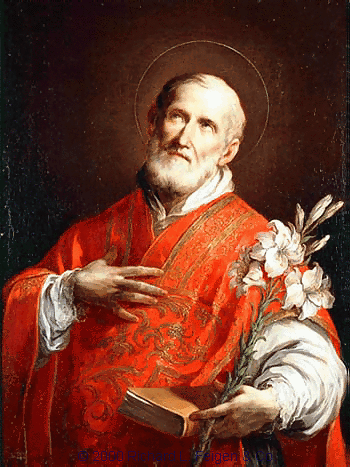Hey everybody,
Welcome to the Tuesday Pillar Post.
We’ve got a lot of news to tell you about, so I’ll get right to it.
Bishops press Gomez to drop “Eucharistic coherence” from meeting agenda
A group of more than 60 bishops sent Archbishop Jose Gomez a letter pressing him to take discussion on “Eucharistic coherence” off the schedule for June’s meeting of the USCCB, despite counsel from the Vatican about how to engage in the conversation.
The letter was sent to Gomez on letterhead from the Archdiocese of Washington, and was reportedly organized by Cardinals Gregory and Cupich, both of whom have spoken out publicly on their opposition to approaches to sacramental discipline that would prohibit pro-choice politicians from receiving the Eucharist.
One cardinal removed his name from the letter after it was sent.
For his part, Gomez sent a memo to U.S. bishops on Friday giving details and background on the planned discussion planned for June on “Eucharistic coherence.” The discussion seems set to proceed.
There’s more to this important story. Read it all here.
Stika or not Stika?
We published on Friday a profile of Knoxville’s Bishop Rick Stika, who is facing a Vatican investigation, after priests and laity in his diocese filed complaints to the Congregation for Bishops alleging numerous failures of leadership, including that he inappropriately interfered in an investigation of sexual misconduct. The bishop told The Pillar he did interfere, but said he had a reason for it.
The profile presents two distinct pictures of Stika:
Priests and laity in his diocese say the bishop is a “narcissist” and a “bully.”
Stika says that’s not him at all, that he is misunderstood, and that his critics have personal bias against him.
The story also raises the prospect of some serious financial issues in the diocese, including this:
In April 2020, the diocese received $7.2 million in federal PPP funds, intended to cover payroll expenses in two diocesan high schools, parish elementary schools, and other ministry sites. The money has not been distributed for use.
I challenged priests in Knoxville about their take on Stika, suggesting that priests everywhere complain about their bishops. I asked them what’s different in Knoxville:
“What’s different is that I’m talking to you. I wouldn’t be doing that at all — I wouldn’t dream of it — if I thought things were just going to work out.”
In this profile, we aimed to tell a complicated story fairly. I hope we did it. Read the story here, and decide for yourself. Plus, you can read about the bishop’s pet squirrel, Rocky.
Pfleger’s back
After demonstrations, protests, the threat of withholding funds, and a serious correction of parish behavior from Cardinal Cupich, Fr. Michael Pfleger is headed back to pastoral ministry on Chicago’s South Side, after an archdiocesan review board found sexual abuse allegations lacked a “semblance of truth.”
Read about the entire saga here.
Bishops and priests arrested in China
Internet-famous Fr. James Altman raises $180k+ online for offline dispute with bishop
Fr. James Altman, the internet-famous folk hero priest who has spoken out online about politics, the pandemic, liturgy, and various other controversial subjects popping into his mind in recent months, has raised more than $180,000 for his “canonical defense,” after his bishop said he would initiate a canonical process to have him removed as the pastor of his parish.
Fr. Altman put it thusly:
“Unfortunately in our cancel culture, if the left whines like they do, like a spoiled brat, often enough, they succeed in cancelling so many voices of truth,” Altman said.
“And now they are whining, like, if I may say so, like the pansy babies that they are, to cancel me… Allegedly because I’m divisive, as they like to say, or as the bishop has stated to me, I am ineffective.”
If you want to understand the American Catholic landscape in 2021, don’t ignore this: A YouTube celebrity priest from a small Wisconsin diocese has raised nearly $200,000 in 48 hours, to defend himself in a canonical process initiated by his bishop. That is where the Church is.
Here are the most obvious lessons:
There is a huge hunger for the kind of direct, authoritative “no-nonsense” populist message offered by priests like Fr. Altman.
Is it theologically accurate? Often no. Is it sometimes contrary to Catholic doctrine? Yes. Is it rhetorically inflammatory? Often yes.
Do some Catholics want it? Yes. So much so that he’s got millions of views on YouTube, and the beginnings of a gigantic fundraising apparatus.
Altman offers for many Catholics the comfort of confirming their pre-existing views, and that helps in part to explain his popularity. But another aspect is that Altman speaks with confidence, self-assurance, directness — no matter how wrong you think he is, it is obvious that he thinks he is right. And that kind of approach — one rooted in authority and the promise of moral clarity — is obviously attractive. Especially because one can easily find clerics in the Church offering lessons that look and sound like moral relativity — and that scandal can be demoralizing and confusing.
The good news is that the Church’s doctrine and structure does offer the authority and the moral clarity that Catholics want. Which brings me to my next point.
Anti-episcopal sentiment and distrust of bishops runs very high for a broad swath of American Catholics. The key to Altman’s fundraising success is that his situation is framed as persecution by his bishop. And that’s a story that, right now, a great many Catholics are willing to believe almost instantly. The McCarrick scandal explains some of that. So does a prevailing sentiment among many Catholics — however accurate or inaccurate — that bishops didn’t do enough to provide for their people during the pandemic. Some of it comes from a sense that bishops don’t say enough to stamp out the culturally conforming, doctrinally incorrect, errors and falsehood on offer from some prominent clerics, Catholic colleges, publications, etc.
And some episcopal distrust is fueled by internet pontificators who, with effective use of video and social media, hammer home a message that bishops really can’t ever be trusted.Some of that is outside of the control of bishops. But some of it isn’t. It seems important that American bishops recognize the reality that many practicing Catholics think — for whatever constellation of reasons — that their bishops are untrustworthy, and that sentiments like that lead them into the influence of figures like Altman.
What should be done about that? I’m not sure I have the whole solution. But taking seriously the reasons people aren’t trusting is a start. So are humility, responsive approachability, real transparency on financial and governance issues, and speaking with the kind of direct moral clarity that Catholics want — and that all people actually need. Some bishops are accomplishing those things well; others have a ways to go.
But recognizing that antiepiscopalism is a growing sentiment, for many actually practicing Catholics in this country, seems like a very important first step to preserving the communion of the Church.
The Church of the internet is the Church of reality.
There is, I’ve noticed, a perception among many Catholic leaders that “noise on the internet” is not reflective of Catholic perceptions in the pews. That’s probably true, but not as true as it once was.
To be sure, not every practicing Catholic is paying attention to online figures like Fr. Altman, but a growing number of them are — that’s evidenced by the near $200k he’s raised since Sunday. And those who are paying attention tend to be people involved at high levels in the life of the parish — the parish pro-life coordinator, catechists, members of the finance council, etc.
I talk to pastors of Newman Centers, and college campus FOCUS missionaries, and even seminary formators, who say the influence of internet-celebrity Catholic pundits on young people is far more pervasive and significant than near anyone outside those environments has recognized.It’s 2021. The internet is real life. And the internet amplifies and intensifies extreme opinions and extreme voices. It is, in short, a moderation killer — study after study demonstrates that. The Church wants wholesale, full bore, zealous Catholicism. The Lord spits out lukewarmth. But zeal for souls is not the same as zeal for celebrity, or the distortions of Catholic doctrine that the internet’s algorithmic magic is built to reward.
The Church will have to grapple with what it means to address all of that: catechetically, pastorally, and perhaps most difficult, authoritatively.
One other thought. As a canon lawyer myself, and having talked with numerous other canon lawyers about this, I estimate that Fr. Altman’s actual canonical defense shouldn’t cost much more than $15k, if that much.
The fundraiser says it will give excess funds to the websites that have amplified Altman’s voice. This entire paradigm is going to raise some serious cash. And that means this isn’t a one-off — look for it to repeat itself as often as it proves profitable.
Closing thoughts
—Today is my older sister’s 43rd birthday. I wouldn’t be a very good brother if I didn’t request your prayers for her and for her family.
—Tomorrow is the Feast of St. Philip Neri, a saint who kept a sense of humor even while calling seriously for a serious reform of the Church. He has, in recent years, become something a patron for me. May he intercede for you, and for your sense of humor, as well
—And finally, a word of thanks, and a pitch. The long Bishop Stika profile we published on Friday is the kind of journalism that takes a lot of time to do well, and a bit of money too. The report on the USCCB letter is something we’ve been chasing for almost two weeks now. We’re able to invest time into stories that really matter because people like you think it’s time — and money — well spent.
If you’ve already become a paying subscriber to The Pillar, thank you. If you haven’t, please consider it. In either case, please consider sharing this Tuesday Pillar Post with your friends who might benefit from it, appreciate it, or want to subscribe.
And, as always, please pray for us as we pray for you. Trust me, we need it.
Go offline for a while, it’s gorgeous out.
Yours in Christ,
JD Flynn
editor-in-chief
The Pillar





